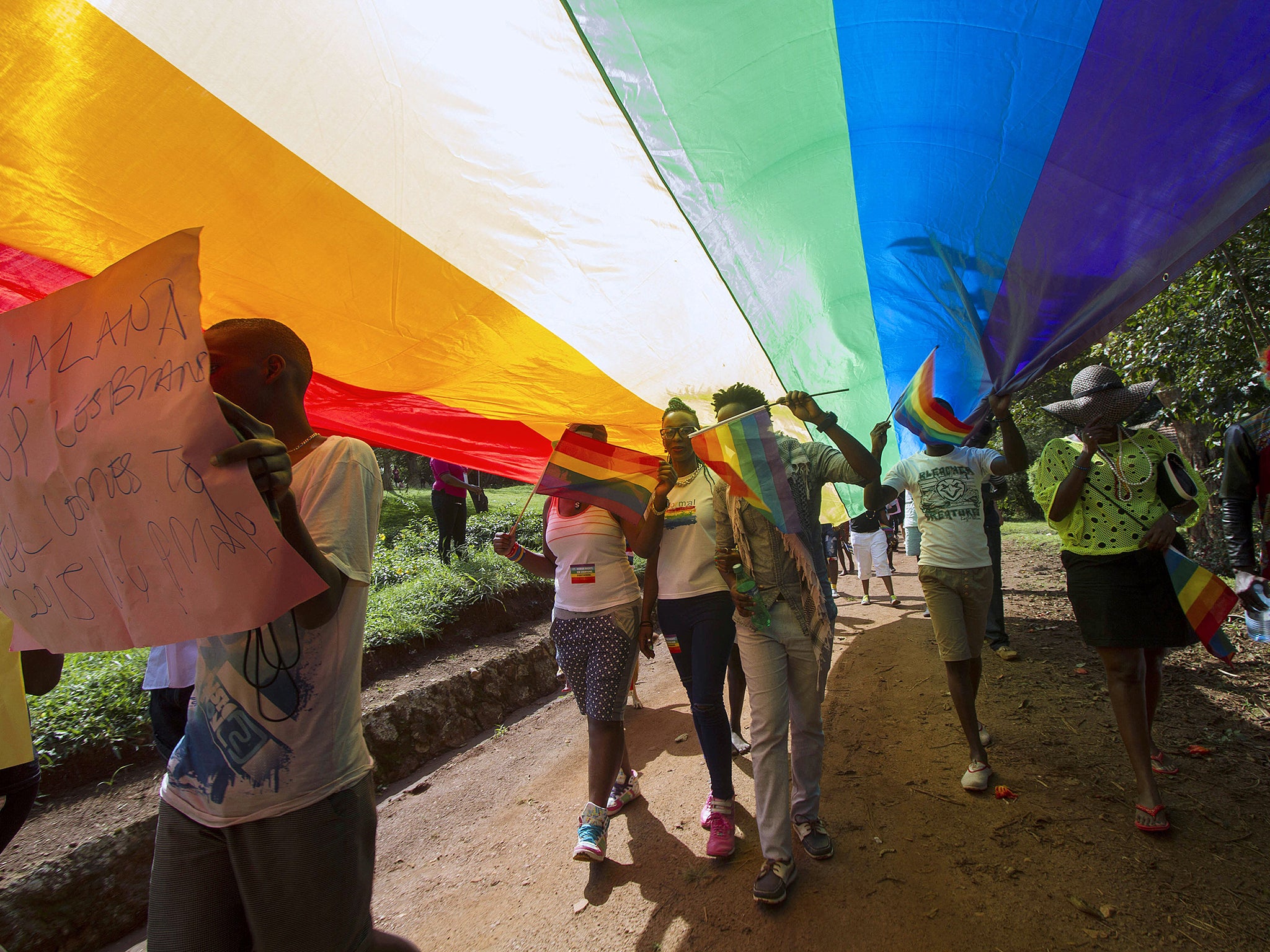Uganda gay pride event 'blocked by police' after government minister declares it illegal
More than 100 LGBT people turned up for the event at a beach on Lake Victoria

Your support helps us to tell the story
From reproductive rights to climate change to Big Tech, The Independent is on the ground when the story is developing. Whether it's investigating the financials of Elon Musk's pro-Trump PAC or producing our latest documentary, 'The A Word', which shines a light on the American women fighting for reproductive rights, we know how important it is to parse out the facts from the messaging.
At such a critical moment in US history, we need reporters on the ground. Your donation allows us to keep sending journalists to speak to both sides of the story.
The Independent is trusted by Americans across the entire political spectrum. And unlike many other quality news outlets, we choose not to lock Americans out of our reporting and analysis with paywalls. We believe quality journalism should be available to everyone, paid for by those who can afford it.
Your support makes all the difference.A Ugandan gay pride parade has been blocked by police after a government minister declared the event was illegal.
Officials stopped organisers from staging the parade at two locations outside the capital, Kampala, local activists said.
Simon Lokodo, the Ugandan minister in charge of ethics and integrity, issued a strong statement earlier this week condemning the public activities of homosexuals.
He urged police to arrest LGBT activists who went ahead with the parade.
More than 100 LGBT people turned up for the event at a beach on Lake Victoria.
Most were later ordered into minibuses and escorted by police to Kampala, apparently for questioning. One young man jumped off a moving minibus and injured himself, Mr Mugisha said.
"They are traumatised," Mr Mugisha added, and also said the LGBT people who had travelled in the minibuses were later set free.
The police’s conduct led to an outpouring of solidarity online, with Twitter users from around the world expressing their sympathy for the group.
Homosexuality is a crime in Uganda, as in a number of African countries. A colonial-era law proscribes homosexual sex acts as "against the order of nature".
The LGBT community has faced frequent discrimination, violence and extortion, according to activists.
In August, Ugandan police briefly arrested about 20 people attending a gay pride event at a nightclub in Kampala. Following the raid, Mr Mugisha and his colleagues decided to postpone the pride parade until September.
In 2009, a Ugandan lawmaker introduced a bill that prescribed the death penalty for some homosexual acts, saying he wanted to protect Ugandan children.
The proposed bill prompted international condemnation. A less severe version of the bill passed by lawmakers was rejected by a Ugandan court as unconstitutional.
Associated Press
Join our commenting forum
Join thought-provoking conversations, follow other Independent readers and see their replies
Comments